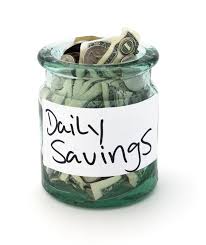Track your spending for success!
If you were to ask me, “what is the single most important thing a person can do to change their financial future?” I would answer “Track their spending”! Oh and I would add “And look at it!”. 
For many years I worked with entrepreneurs and business owners and it always amazed me at how few of them looked at their financial records more than the once-a-year needed to file their tax returns. I am equally amazed at how few people do this personally. If it feels like things are going well, we just seem to coast by in auto-pilot and only when we hit turbulence do we sit up, take notice, and take steps to get back on course.
There is a huge benefit to looking at your financial data when things are going well. You can make small changes that have little impact on your living but major impact on your bottom line.
Let me tell you a quick story about a relative of mine. Several years ago we were chatting about her finances as her husband had lost his job. Prior to this event in their lives they had lived a pretty comfortable life – no really worries financially. They were building a family, a home, a life. Well, the loss of job resulted in a new job with a lot less pay. So, they had to start watching what they were spending and were amazed (with a dash of appalled) at what was going out on groceries. She took some steps to cut back and with very little effort and no effects on their healthy-living lifestyle, cut $200 a month from her grocery budget.
Now I don’t know about you, but I would much rather spend $200 a month on something fun versus buying more groceries!
Here’s the downside. They cut $200 because they had to. The change did not result in any extra cash flow at this time in their lives. But, and this is a BIG but … had they done this a few years ago, they wold have had extra money to pay off debt, take a vacation, or any number of things they might have wanted to do.
So my point is, don’t wait until you need to do it, do it now! Keep track of what you spend for at least 6 months (preferably a year) and look at it monthly. Then, simply try some strategies to cut back on various expenses, and redirect that savings to something that really matters to you. We have a “Family Fun Fund”. Any extra coin goes in for a planned family day.
The following are some tips to help you get started:
- If you pay everything with debit, use your bank statement or online banking to do your tracking. Each month review your statement(s) and total up the different categories.
- If you are a cash person, keep receipts, at the end of the day when you get home sort your receipts in envelopes or folders (I love accordion folders with the separate compartments). Makes adding those buggers up a lot less of a hassle when you get to it.
- Make lots of categories, the more specific expenses you have, the more saving strategies you can employ and measure. (ie. track your coffee spending and then try taking your coffee every so often to see what you save). Don’t be afraid to have a “miscellaneous” category. If it gets to be too big of an amount per month, however, start breaking it out.
- Keep a total of each category from month to month with a view of having a complete years history. Look at how the amounts fluctuate and pick out higher-spending patterns or times when you spent less and learn from these patterns. (I found out very quickly doing this that when ever we have extra money, most of it goes to groceries and dining out. With a little more attention during these times we were able to redirect that extra money towards more important goals like a family vacation)
- Use the many, many online resources available to either input your data or download your data. Let it do the sorting and categorizing for you.
- Review the information at the beginning of each year, look at what you did last year and set some goals for the new year on what you plan to do differently.
And the end of all that tracking and analyzing, pat yourself on the back for paying attention to your finances and express gratitude for all that your money have given you over the year – a roof over your head, food on your table, transportation, fun family times, whatever it is. And plan to make next year even better than the last.
Happy Finances!
Related posts:
Are you willing to let go for your greater good?







